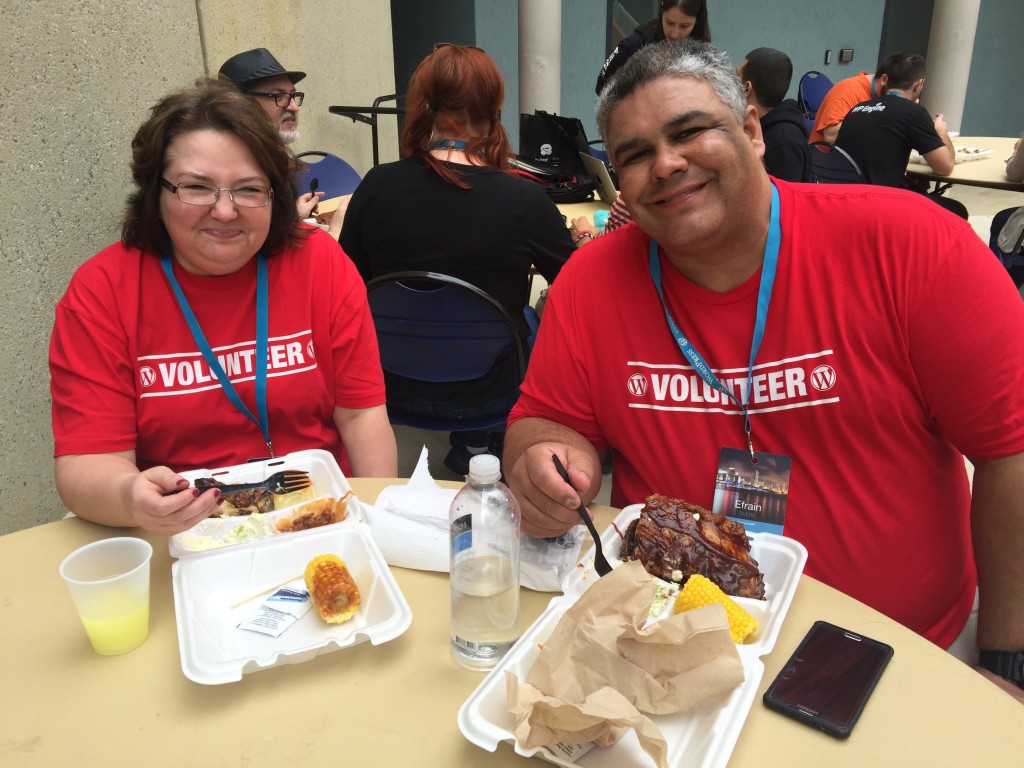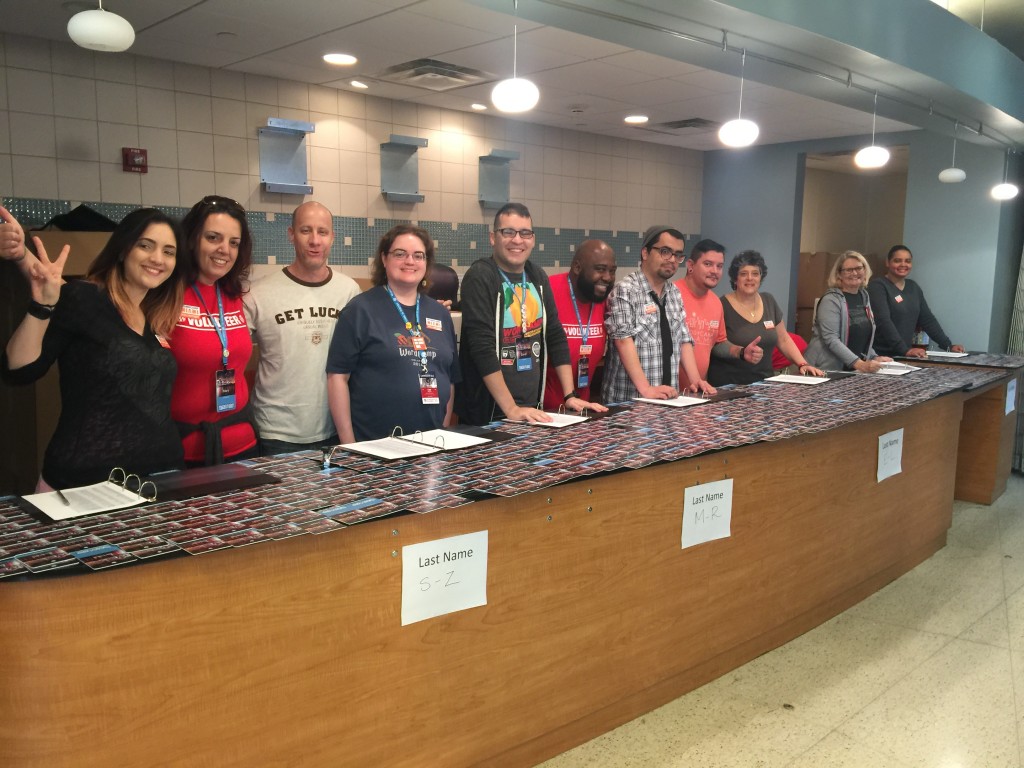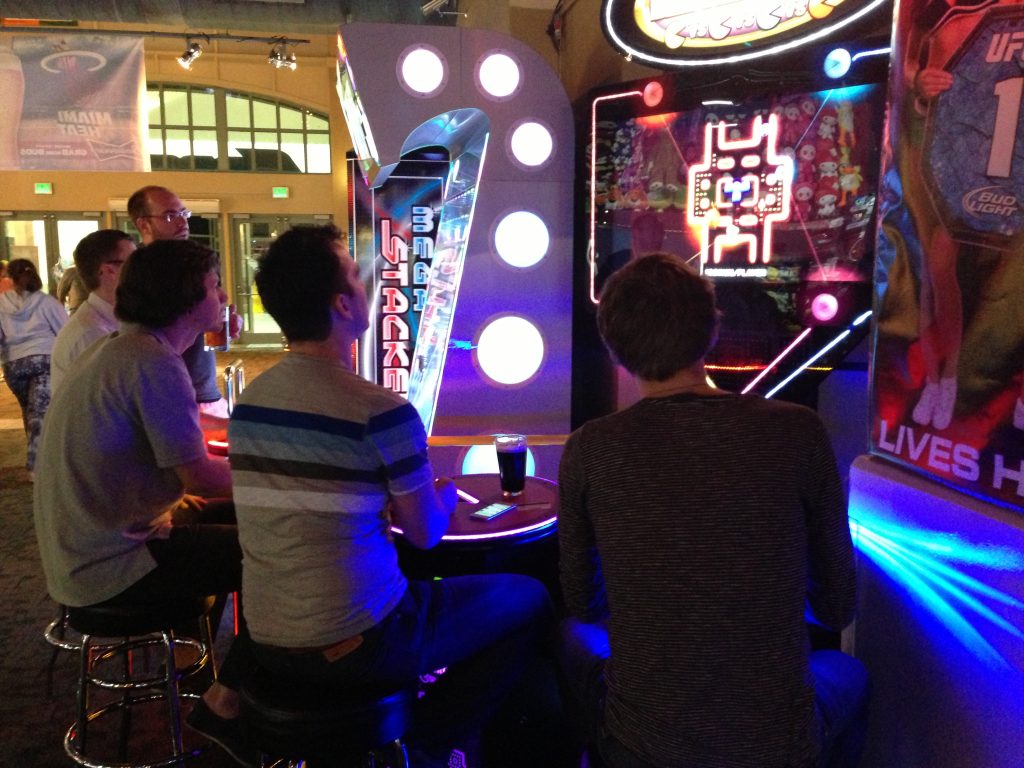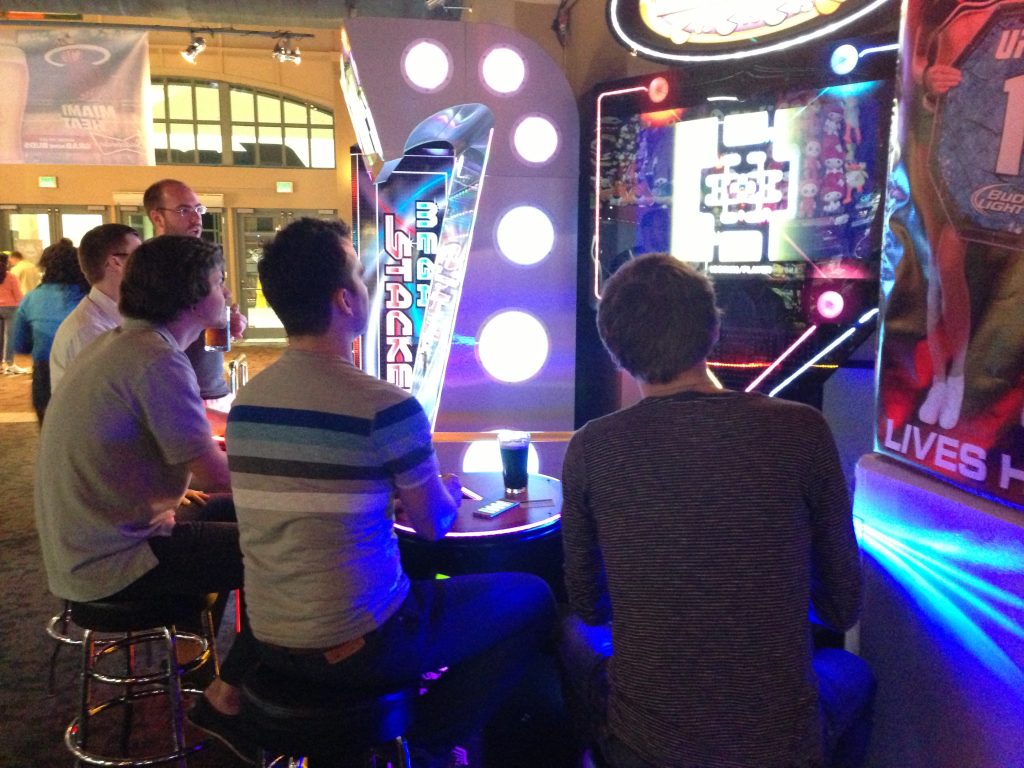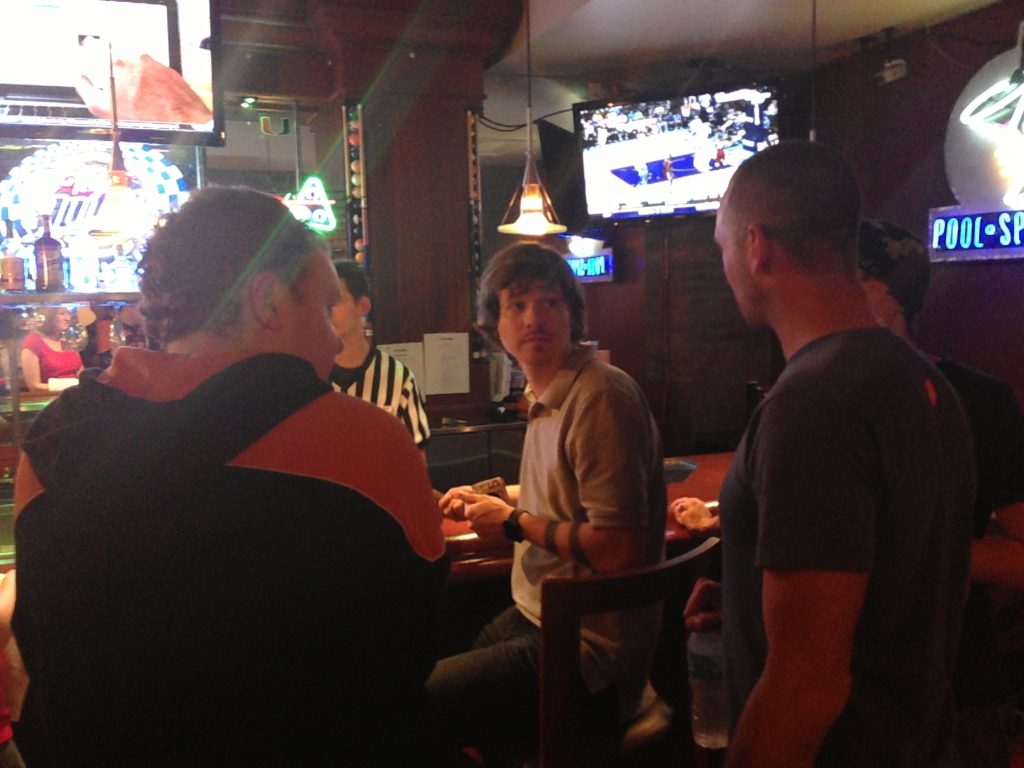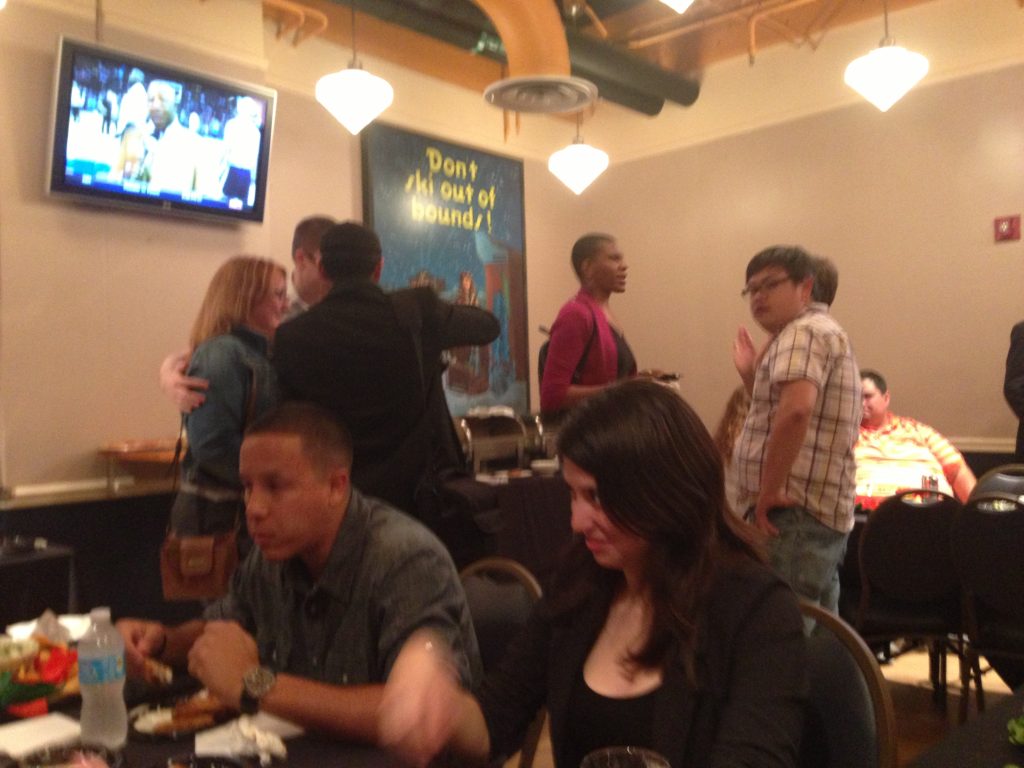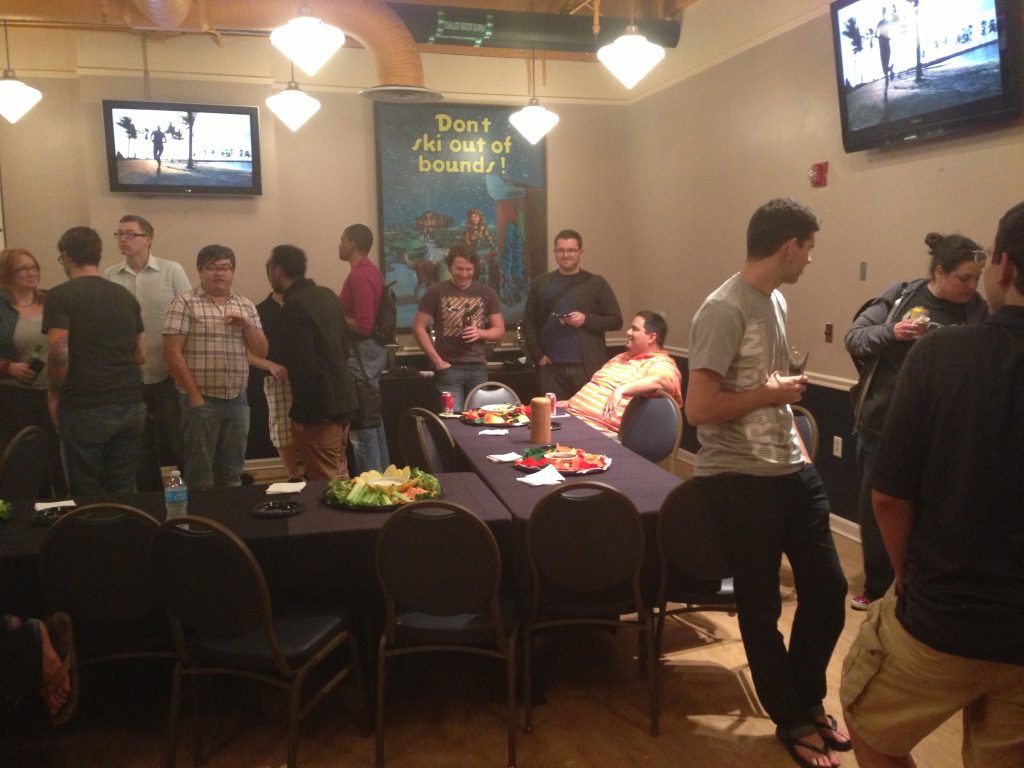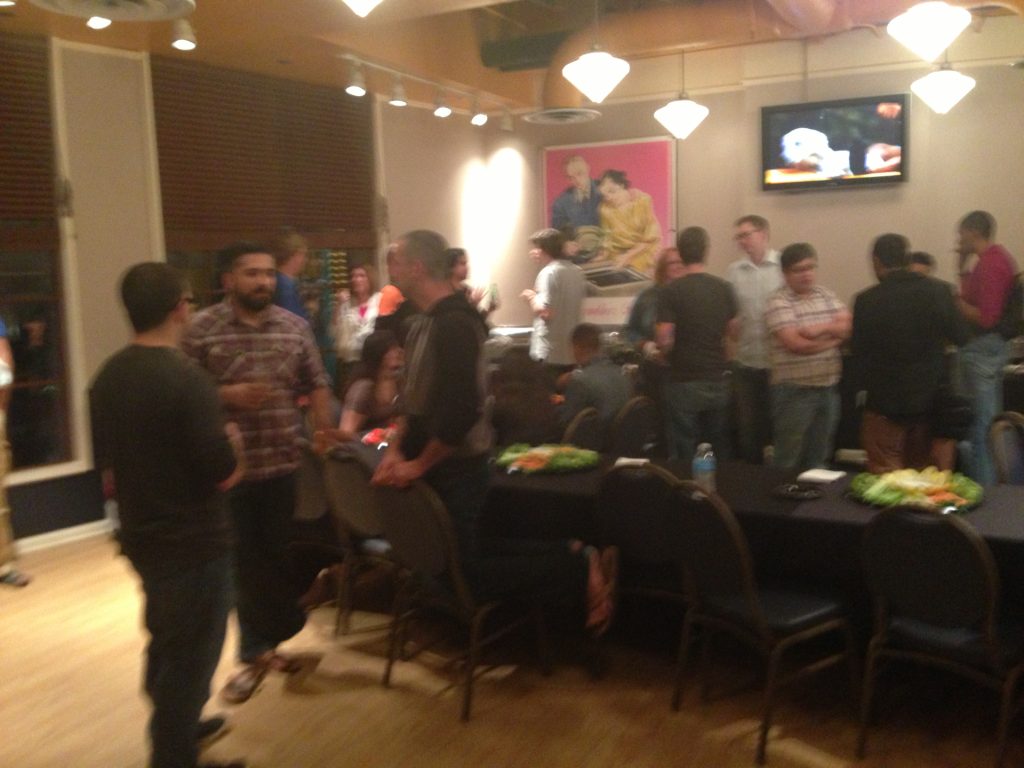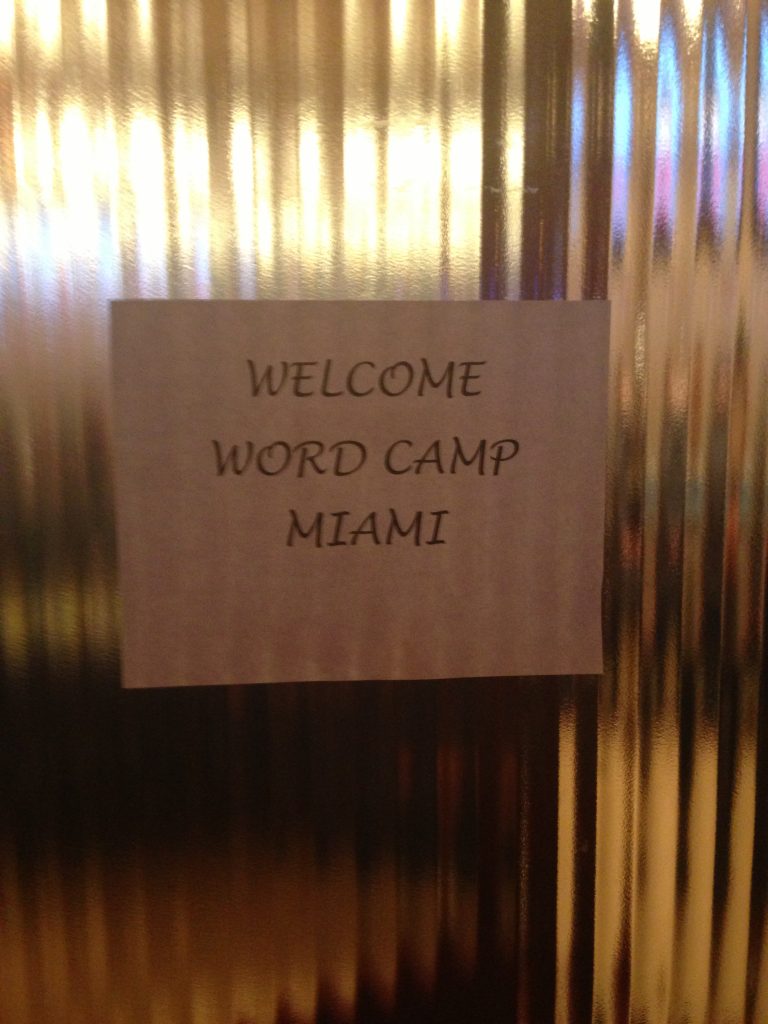We announced some interesting data at the last WordCamp Miami for our 10th anniversary. One of which was the speaker data. I’m listing all the “official” speakers here (official as in there might have been some last minute replacements or cancels, but these are all the names reflected on the official sites).


Highlights:
324 Unique Speakers
160 Speakers Have Spoken At WordCamp Miami More Than Once
484 Speaker Slots (although if you include some unofficial speaking, opening/closing remarks, this is over 500)
2009
James Carcutt
David Bisset
Mark Jaquith
Ptah Dunbar
2010
Jake Goldman
Jane Wells
Tammy Hart
Syed Balkhi
Mark Jaquith
Scott Kingsley Clark
Jim Turner
John James Jacoby
Rick Tuttle
Michael Froomkin
Aaron Brazell
Roger Theriault
Brian Breslin
John Carcutt
Stephanie Rosenblatt
Shayne Sanderson
Pete Bernardo
Angie Moncada
Jim Gilbert
2011
Jeremy Harrington
John Carcutt
Matt Martz
Michael Chacon
Dezmon Landers
Kevin Zurawel
Brendan Sera-Shriar
Steven Mautone
Austin Passy
Jonathan Davis
Mark Jaquith
Andrew Nacin
Ptah Dunbar
Tammy Hart
Jhonatan Castaneda
Toni Gemayel
David Carr
Syed Balkhi
Adam W. Warner
Maria de los Angeles
Rey Bango
Josh Guffey
Stephen Gilboy
David Gewirtz
2012
Adrian Esquivel
Alex Gutierrez
Andrea Graham
Andy Stratton
Aubrey Sears
Ben Metcalfe
Blanca Stella Mejia
Brian Breslin
Chris Lauzon
David Tufts
Denise Jacobs
Erick Hitter
Gary Bacon
Jake Goldman
Jane Wells
Jess Jurick
John Sexton
Kevin Zurawel
Lisa Sparks
Maria De Los Angeles
Mason James
Melissa Venable
Myke Bates
Pamela Wynn
Ptah Dunbar
Rick Tuttle
Sam Grant
Stephen Gilboy
Steven Mautone
Syed Balkhi
Taryn Pisaneschi
Vicent Llopis
2013
Boone B Gorges
Tammie Lister
Paul Gibbs
Diana Espino
Syed Balkhi
Michael Chacon
Michael Alcantara
David Parsons
Brian Breslin
John James Jacoby
Bowe Frankema
Emilio Cueto
Federico Sandoval
Asa Shatkin
Erick Hitter
Mark Jaquith
Siobhan McKeown
Andy Vitale
Ernie Hsiung
Mason James
Mauricia Ragland
Nick Gernert
David Laietta
Jacqueline Jimenez
Myke Bates
Blanca Stella Mejia
Alex de Carvalho
Joshua Hansen
Cody Landefeld
Steve Zehngut
Ken Granger
Joe Boydston
Jayvie Canono
Suzette Franck
Zac Gordon
Andi Graham
Randy Hoyt
Denise Jacobs
Taylor Jasko
Grant Landram
Chris Lema
Brian Messenlehner
Michael Montgomery
Andrew Norcross
Shane Perlman
Tony Perez
Justin Sainton
Cliff Seal
Lisa Sabin-Wilson
Brad Williams
Pippin Williamson
2014
Aaron Jorbin
Adrian Cardenas
Alison Foxall
Amanda Blum
Anna Tuttle
Blanca Stella Mejia
Brad Touesnard
Brad Williams
Brian Messenlehner
Brian Richards
Carl Hancock
Chris Lema
Chris Wiegman
Cody Landefeld
Cory Miller
David Laietta
David Parsons
Diane Kinney
Dre Armeda
Gabriela Levit
Hector Torres
Hristo Pandjarov
Jackie Jimenez
Jared Atchison
Jared Easley
Jeff Chandler
John Carcutt
John James Jacoby
Jonathan Brinley
Josh Eaton
Karim Marucchi
Karla Campos
Kathryn Presner
Mark Jaquith
Mason James
Matt Medeiros
Michael Eisenwasser
Michelle Schulp
Mika Epstein
Nathan Hangen
Noel Tock
Pascal Depuhl
Pippin Williamson
Rebecca Gill
Rebekah Monson
Rick Tuttle
Rosie Taylor
Sarah Gooding
Steven Alig
Suzette Franck
Syed Balkhi
Sze Liu
Tammie Lister
Tomas Puig
Tracy Rotton
Trisha Salas
Zac Gordon
2015
Aaron Campbell
Adam Culp
Adam Soucie
Andrea Rennick
Becky Davis
Ben Newton
Bill Erickson
Brian Messenlehner
Chase Livingston
Chris Christoff
Chris Lema
Chris Wiegman
Chrissie Scelsi
Cory Miller
Dan Beil
Darcy Sullivan
David Bisset
David Hayes
Devin Vinson
Doug Stewart
Enrique Canals
Hristo Pandjarov
Ibis Arrastia
James Tryon
Jared Atchison
Jason Coleman
Jason Nickerson
Jeremy Pound
Jesse Petersen
John James Jacoby
Jonathan Brinley
Joseph Van
Josh Pollock
Justin Sainton
Karim Marucchi
Lisa Melegari
Marc Benzakein
Mark Jaquith
Mason James
Matt Cromwell
Michele Butcher
Michelle Schulp
Morten Rand-Hendriksen
Nakeesha Charles
Nancy Richmond
Nikhil Vimal
Pascal Depuhl
Rami Abraham
Roy Sivan
Ryan Fugate
Sarrah Vesselov
Shanta Nathwani
Shawn Hooper
Stephanie Brinley
Steve Burge
Syed Balkhi
Sze Liu
Taylor Lovett
Tim Sisson
Topher DeRosia
2016
Rachel Carden
Jim Gilbert
Adrian Cardenas
Jose L Pimienta
Bruno Cunha
Binod Purushothaman
Logan Kipp
Cliff Seal
Ptah Dunbar
Adam Culp
Karla Campos
Christina Siegler
Rocío Valdivia
Mark Jaquith
Dr. Nancy Richmond
Zac Gordon
Nizar Khalife Iglesias
Alex Oliveira
Shayla Price
Frank Corso
Bill Gadless
Chris Christoff
Andrew Norcross
Kimberly Lipari
Karim Marucchi
Michele Butcher
Jean Felisme
Patrick Alexander
Nicole Perpillant
Fridelande Rosas
Michelle Marin
Steven Alig
Ibis Arrastia
Carl Alexander
Dr. Anthony Miyazaki
John James Jacoby
David Bisset
Konstantin Obenland
Michael Cain
Josh Pollock
Ben Stoffel-Rosales
Kevin Stover
Camden Segal
David Yarde
Patrick Rauland
Marc Gratch
Marc Benzakein
Mike Hansen
Georgina Lewis
Ernie Hsiung
Pascal Depuhl
Matt Medeiros
Louise Treadwell
Adam Lamagna
Nile Flores
Dustin Meza
Devin Walker
Syed Balkhi
Stephanie Brinley
Catalina Valenzuela
Michelle Schulp
John Bloch
Adam Soucie
Steve Zehngut
David Laietta
Karen Dimmick
Victor Santoyo
Shawn Hooper
Sarah Pressler
Irina Blumenfeld
Chris Lema
Mindy Postoff
Scott Mann
Cal Evans
Sandy Edwards
Elayna Fernandez
Elyssa Fernandez
Elisha Fernandez
James Laws
Chris Wiegman
2017
Jon Brown
Kyle Putnam
Liam Dempsey
Bradley Cummins
Miles Lifton
Andrew Wikel
Sherry Walling
Karim Marucchi
Mason James
Jodie Riccelli
Diane Kinney
Mark Jaquith
Victor Santoyo
Andrew Norcross
Peter Carabeo
Michael Dyer
Brian Rotsztein
Jonathan Brinley
Hristo Pandjarov
Pascal Depuhl
Allie Nimmons
Chris Coyier
Krystal Galewski
Leah Halbina
Meagan Hanes
Melanie G Adcock
Mike Herchel
Naomi C. Bush
Paul Gilzow
Pete Nelson
Rachel S Lucas
Rebecca Gill
Shayla Price
Shelly Peacock
Shilpa Shah
Tanner Moushey
Tara Claeys
Tracy Apps
Troy Dean
Jayvie Canono
Jason Mazier
Eduardo Carreiro
Diana Espino
David Johnson
Christie Chirinos
Carrie Dils
Brian Messenlehner
Auston Bunsen
Andrew Taylor
Amanda Giles
Aleksander Kuczek
Carl Alexander
Pirate Dunbar
Karla Campos
Dr. Nancy Richmond
Zac Gordon
Nizar Khalife Iglesias
Alex Oliveira
Chris Christoff
Kimberly Lipari
Steven Alig
Anthony Miyazaki
John James Jacoby
Josh Pollock
Patrick Rauland
Louise Treadwell
Syed Balkhi
Michelle Schulp
Adam Soucie
David Laietta
Shawn Hooper
Scott Mann
Cal Evans
Sandy Edwards
Chris Wiegman
2018
William Jackson
Carole Olinger
Miriam Goldman
Naomi C. Bush
Matt Cromwell
Rodrigo Donini
Josh Pollock
Bobby Bryant
Jesse Velez
Jean Regisser
John Blackbourn
John Maeda
Tara Claeys
Lenora Porter
Francesca Marano
Matt Mullenweg
Aidan Lacayo
Pascal Depuhl
Keri Engel
Scott Mann
Rick Tuttle
Roxana Colorado
Christie Chirinos
Adam Warner
Patrick Alexander
Alejandro Sanchez
Andrew Taylor
John James Jacoby
Joshua Strebel
Dr. Nancy Richmond
Zac Gordon
Bradley Cummins
Kevin Langley Jr.
Sherry Walling
Mary Baum
Mark Ratcliff
Sandy Edwards
Melanie Adcock
Nakeesha Charles
Windy Pierre
Chris Flannagan
Jayda Washington-Boothe
Carlos Vazquez
Irina Blumenfeld
Cody Landefeld
Karim Marucchi
Syed Balkhi
Rian Kinney
Mauricio Dinarte
Chris Lema
Grzegorz Ziółkowski
Andrew Norcross
Andreas Lopez
Jean Felisme
Zach Stepek
Dwayne McDaniel
Karla Campos
Raquel Landefeld
Birgit Pauli-Haack
Natalia Real
Pat Ramsey
Michelle Schulp
Tessa Kriesel
Beka Rice
Anthony Miyazaki
Aleyna Harris
Victoria Dameus
Lindsay Halsey
Brian Richards
Marc Benzakein
Sze Liu
Georgina Lewis
Alyssa Harris
Victor Santoyo
Annejeanette Washington
Pam Aungst
Miles Lifton
Nicole Paschen Caylor
Louise Treadwell
Sebastian Rusk
Edward Pratt
 It is with a sad heart that I am reporting that Efrain Rivera, a friend and volunteer to the local (and not so local) WordPress community passed on January 28th, 2018. He was 47.
It is with a sad heart that I am reporting that Efrain Rivera, a friend and volunteer to the local (and not so local) WordPress community passed on January 28th, 2018. He was 47.